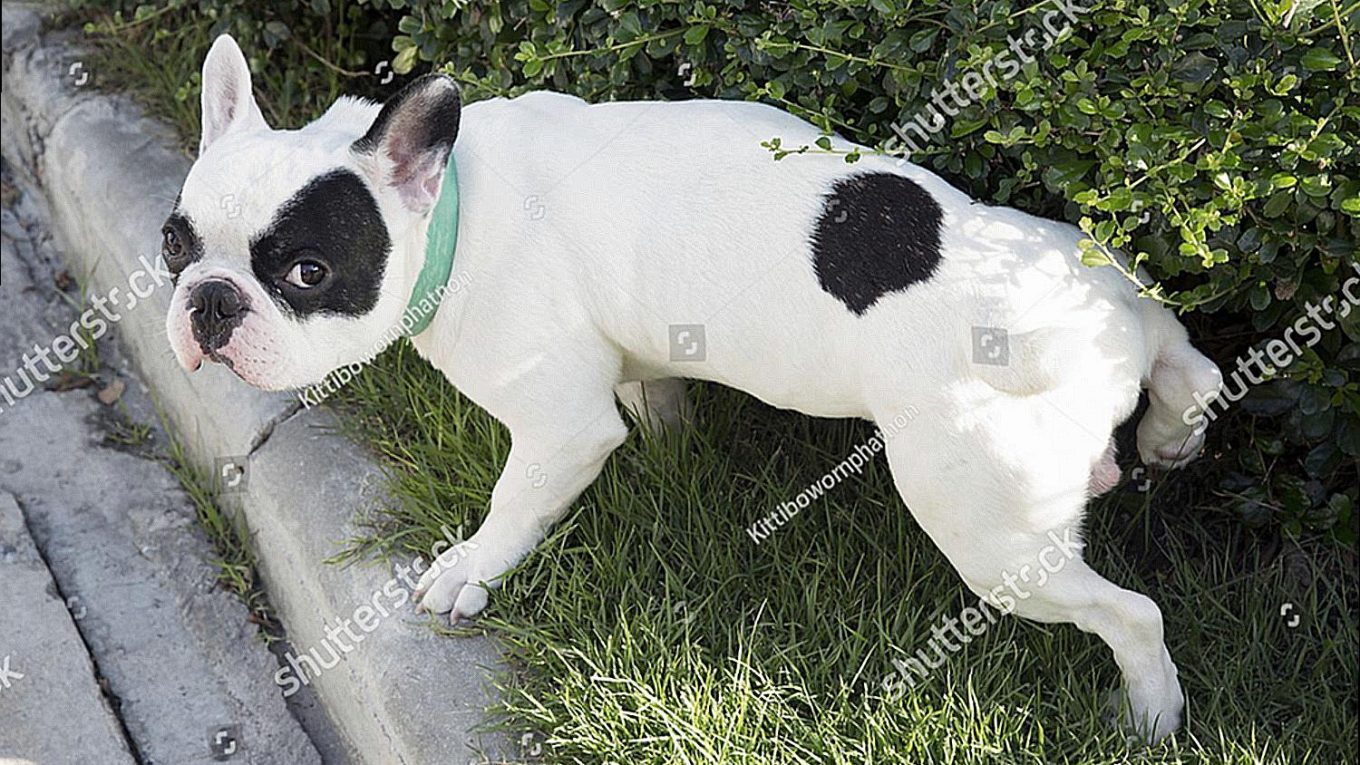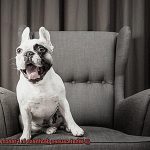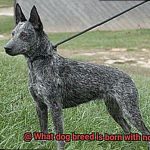What age do French Bulldogs stop peeing in the house?
If you’re a proud Frenchie parent, you’ve likely experienced the occasional mess and wondered when your adorable pooch will finally stop peeing in the house. Well, fear not. We’re here to shed some light on this common concern and help you navigate the journey to a pee-free home.
House training a French Bulldog is no walk in the park. These little bundles of energy are smart, but it takes time, consistency, and oodles of patience to teach them proper bathroom etiquette. While there’s no magic age at which all Frenchies suddenly become potty-trained pros, there are some general patterns and milestones to keep an eye out for.
Typically, between four to six months old, French Bulldogs start grasping the concept of house training. They develop better bladder control and can hold their urine for longer periods. But don’t pop that champagne just yet – accidents may still happen as they continue learning and adapting to their surroundings.
Keep in mind that every Frenchie is unique, so their progress with house training may vary. Some might catch on quicker than others, while some may need extra reinforcement and gentle guidance. Remember: consistency is key.
Around six to eight months old, you should start seeing significant improvements in your Frenchie’s ability to control their bladder. Accidents should become less frequent and mainly occur due to distractions or sudden changes in routine.
By their first birthday – marking their grand entrance into adulthood – the vast majority of French Bulldogs should have mastered the art of house training. But don’t let your guard down just yet. It’s important to remain vigilant and reinforce those good habits to prevent any regression.
In conclusion, most French Bulldogs stop peeing in the house between six to twelve months old. While it may feel like an eternity during the rollercoaster of training, remember that patience and consistency are the keys to success. Reward your furry friend for their positive behavior, avoid punishing them for accidents, and stick to a regular bathroom schedule. With time and persistence, you’ll soon bid farewell to those messy mishaps and embrace a harmonious, accident-free life with your well-trained Frenchie companion.
So, hang in there, fellow Frenchie parents. The day will come when you can finally say goodbye to those frustrating clean-ups and revel in the joy of
The Process of House Training a French Bulldog
Contents
- 1 The Process of House Training a French Bulldog
- 1.1 Step 1: Start Early – Setting the Foundation
- 1.2 Step 2: Establish a Routine – Consistency is Key
- 1.3 Step 3: Use Positive Reinforcement – Encourage Good Behavior
- 1.4 Step 4: Supervise Indoors – Prevent Accidents
- 1.5 Step 5: Interrupt Accidents – Teach Boundaries
- 1.6 Step 6: Be Consistent – Stick to the Plan
- 2 Establishing a Consistent Routine for Bathroom Breaks
- 3 Closely Monitoring Your French Bulldog Indoors
- 4 Factors That May Affect House Training
- 5 When to Consult With a Professional Dog Trainer or Behaviorist
- 6 The Average Age at Which French Bulldogs Stop Peeing in the House
- 7 Tips for Successfully House Training a French Bulldog
- 8 Understanding Accidents After the Initial House Training Period
- 9 Conclusion
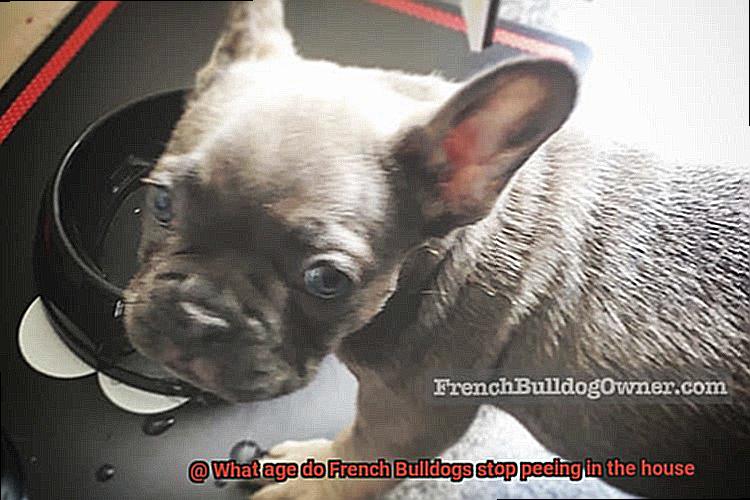
House training a French Bulldog can be a challenging task, but with the right approach and consistent training, you can successfully teach them to stop peeing in the house. In this comprehensive guide, we will walk you through the process of house training your French Bulldog step-by-step, using descriptive language and simple-to-understand sentences.
Step 1: Start Early – Setting the Foundation
To set your French Bulldog up for success in house training, it’s crucial to start early. Begin the training process as soon as you bring your French Bulldog puppy home, around 8-10 weeks of age. This is the time when they are more receptive to learning and adapting to new routines.
Step 2: Establish a Routine – Consistency is Key
Establishing a routine is crucial for house training your French Bulldog. Take them outside to the designated potty area at regular intervals throughout the day – after meals, naps, playtime, and waking up in the morning or from a nap. By following a consistent schedule, you are helping them understand when and where they should eliminate.
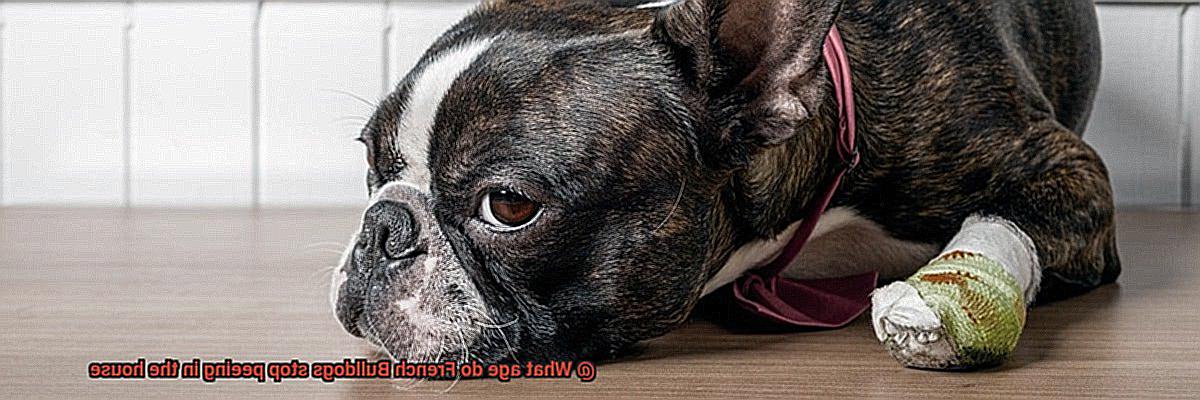
Step 3: Use Positive Reinforcement – Encourage Good Behavior
Positive reinforcement techniques such as praise, treats, and rewards play a vital role in encouraging your French Bulldog to eliminate outside. When they do their business in the right place, immediately praise them and offer treats or rewards. This helps them associate going potty in the designated area with positive experiences.
Step 4: Supervise Indoors – Prevent Accidents
To prevent accidents indoors, supervise your French Bulldog closely. Keep them in a confined space or use a crate when you cannot directly supervise them. Gradually increase their freedom in the house as they become more reliable with their bathroom habits. Remember, accidents are bound to happen, but with proper supervision, you can minimize them.
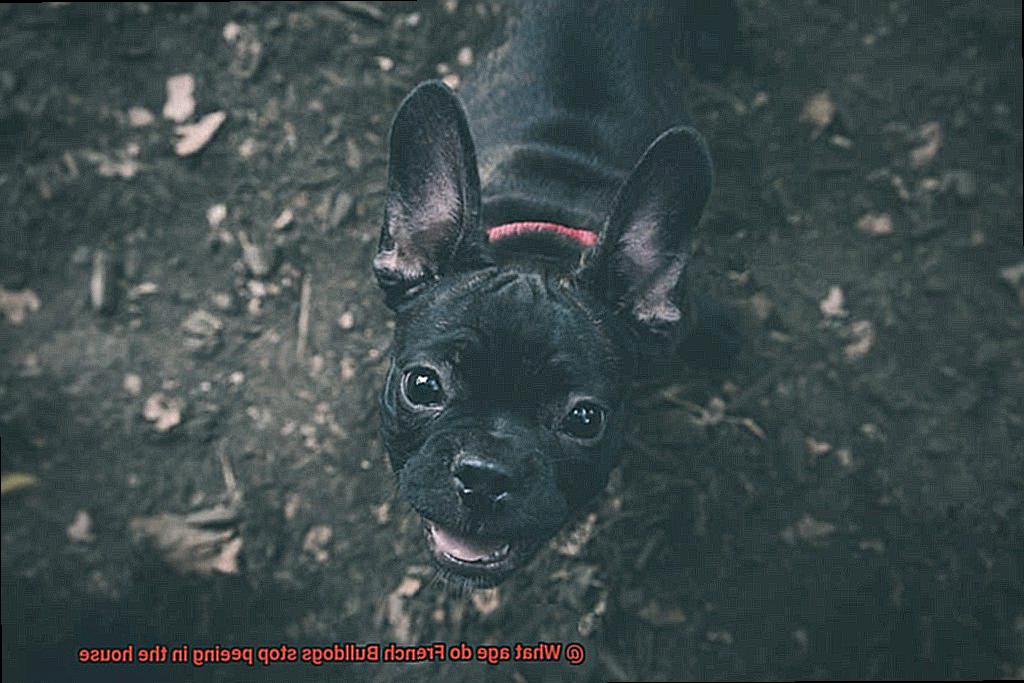
Step 5: Interrupt Accidents – Teach Boundaries
Accidents are inevitable during the house training process. When you catch your French Bulldog in the act of peeing inside, firmly say “no” to interrupt them and immediately take them outside to finish eliminating. This teaches them that peeing indoors is not acceptable and redirects them to the appropriate place.
Step 6: Be Consistent – Stick to the Plan
Consistency is key in house training. Stick to a regular feeding schedule and take your French Bulldog outside at the same times every day. This helps establish a routine and makes it easier for them to understand when and where they should eliminate. Consistency reinforces the desired behavior and speeds up the learning process.
Step 7: Patience and Persistence – Trust the Process
Establishing a Consistent Routine for Bathroom Breaks
House training your French Bulldog can be a challenging yet rewarding experience. One of the most essential aspects of this process is establishing a consistent routine for bathroom breaks. In this article, we will explore the significance of this routine and provide valuable tips and guidelines to help you successfully house train your French Bulldog.
Why is a Consistent Routine Important?
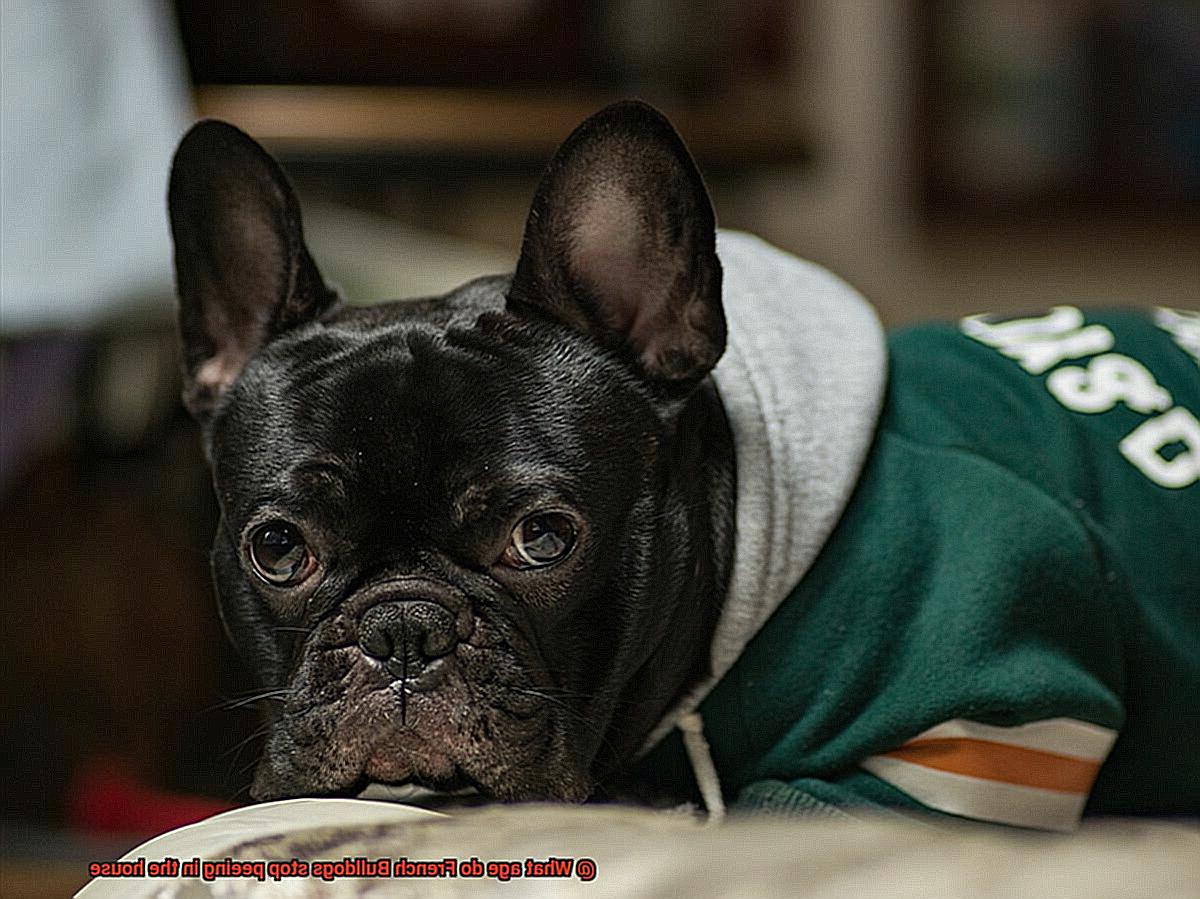
French Bulldogs, like all dogs, thrive on routine and structure. Having a set schedule for bathroom breaks can make a significant difference in their house training progress. By establishing a consistent routine, you are providing your furry friend with predictability and reducing the likelihood of accidents in the house. Let’s delve into how to create an effective routine for your French Bulldog.
Determining the Frequency:
The first step in establishing a routine is determining how often your French Bulldog needs to go outside to relieve themselves. This can vary based on factors such as age, size, and overall health. Puppies generally have smaller bladders and may need more frequent trips outside, while adult dogs can usually hold it for longer periods of time.
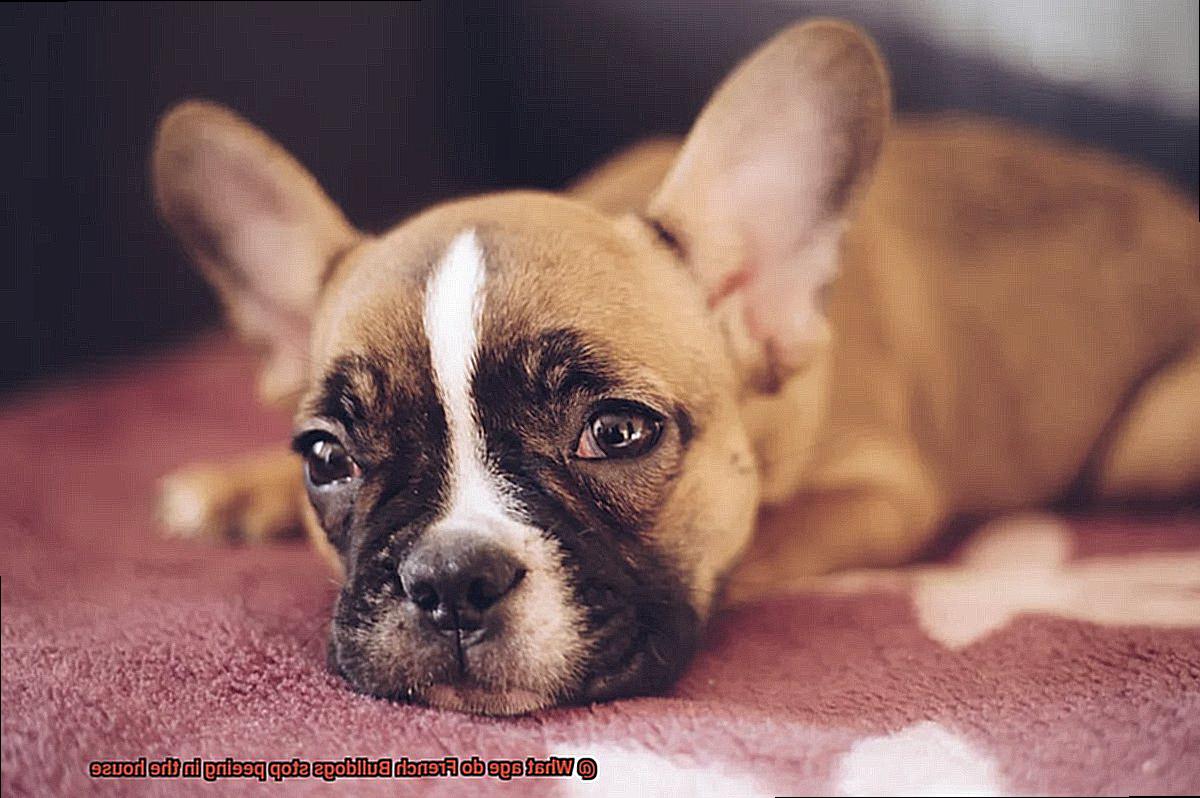
Sticking to a Schedule:
When establishing a routine, consistency is key. Aim to take your French Bulldog out at the same times every day, such as first thing in the morning, after meals, before bedtime, and before leaving the house. By adhering to this schedule, you are helping your dog develop a sense of predictability and reinforcing positive habits.
Using Verbal Cues:
In addition to sticking to a schedule, using verbal cues or commands can be helpful in teaching your French Bulldog when it’s time to go outside. Consistently saying “outside” or “potty” before each bathroom break reinforces the association between the cue and the desired behavior.
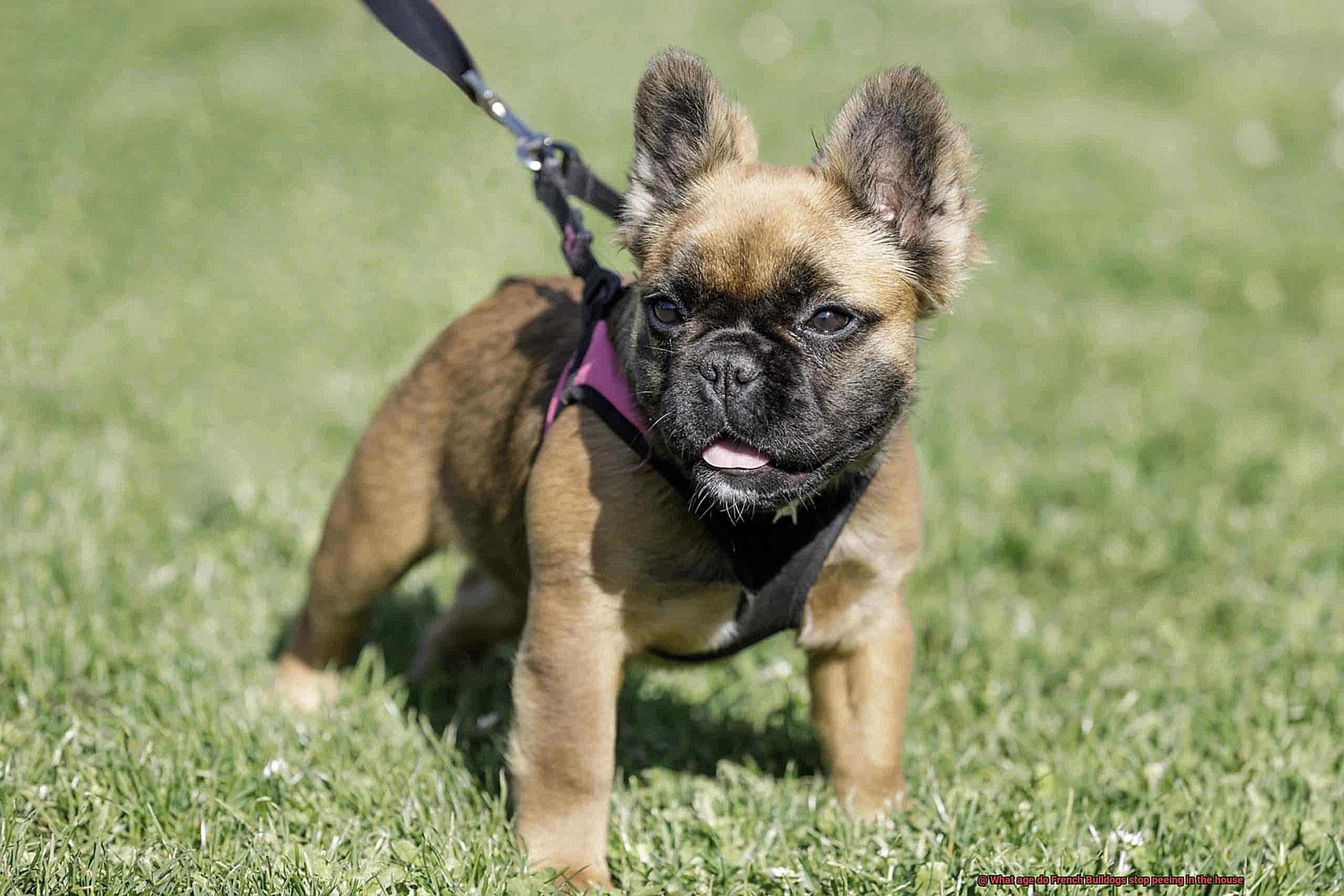
Rewarding Good Behavior:
Positive reinforcement plays a crucial role in house training. Reward your French Bulldog with treats or praise every time they go potty outside. This positive reinforcement helps to strengthen the behavior and motivate your dog to continue going outside instead of inside the house.
Dealing with Accidents:
If accidents happen inside the house, it’s vital not to punish your French Bulldog. Instead, thoroughly clean up the mess and focus on preventing future accidents by sticking to the established routine and closely monitoring your dog’s bathroom habits.
Seeking Professional Help:
Sometimes, despite a consistent routine, accidents still occur frequently. In such cases, it may be beneficial to consult with a veterinarian or professional dog trainer. They can rule out any underlying medical or behavioral issues and provide guidance on how to effectively address the problem.
Closely Monitoring Your French Bulldog Indoors
French Bulldogs, known for their adorable wrinkles and playful personalities, bring so much joy to our lives. However, like any other breed, they require close monitoring indoors, especially when it comes to their bathroom habits. In this article, we will explore the importance of closely monitoring your French Bulldog indoors and provide you with tips for effective supervision and house-training techniques.
Establishing a routine is crucial when it comes to training your French Bulldog to stop peeing in the house. By following a consistent schedule, you can help your furry friend understand when and where they should relieve themselves. Take your French Bulldog outside at regular intervals, such as after meals, playtime, or waking up from a nap. Reward them with praise or treats when they eliminate outdoors, reinforcing positive behavior.
Using crates or confinement areas can be incredibly useful in closely monitoring your French Bulldog indoors. Dogs generally do not like to soil their sleeping or resting areas, so using a crate or designated space can help prevent accidents. Ensure that the crate is properly sized for your French Bulldog and make it comfortable with bedding and toys. Gradually increase the time your Frenchie spends in the crate, allowing them supervised playtime outside when they are not confined.
Supervising your Frenchie is crucial in preventing indoor accidents. Keeping a close eye on them allows you to quickly intervene if you notice any signs that they need to eliminate, such as sniffing around or circling. Keep them within sight and restrict access to areas of the house where accidents are more likely to occur. Consider using baby gates or closing doors to create boundaries.
Positive reinforcement is an effective training method that encourages desired behavior through rewards and praise. When your French Bulldog eliminates outside, provide immediate praise, affection, or treats to reinforce the behavior. This positive association will help them understand that eliminating outdoors is the preferred option. Avoid punishing or scolding your Frenchie for accidents, as this can create fear and confusion.
Maintaining a consistent feeding schedule can aid in house-training your French Bulldog. By feeding them at regular times, you can predict when they are likely to need to eliminate. This allows you to take them outside before accidents happen. Avoid free-feeding or leaving food out all day, as it can make it more challenging to establish a routine.
Understanding your French Bulldog’s body language is essential in anticipating when they need to go outside. Look for signs such as restlessness, pacing, sniffing, or sudden changes in behavior. If you notice any of these signs, immediately take your Frenchie outside to their designated bathroom area.
Factors That May Affect House Training
Bringing home a French Bulldog puppy is an exciting time, but mastering house training can sometimes feel like wrangling a wild artist in a canvas-filled studio. However, with patience, consistency, and understanding of the factors that may impact house training, you can transform your Frenchie into a potty-trained masterpiece.
In this comprehensive guide, we will explore the various factors that can affect house training for French Bulldogs and provide expert tips to navigate this process successfully.
Age:
Age plays a significant role in house training. Just like any other breed, French Bulldog puppies have less bladder control and may take longer to be fully house trained. It’s crucial to be patient during this period and provide consistent training to set them up for success.
Breed Characteristics:
French Bulldogs, with their adorable squishy faces and compact size, have smaller bladder capacities compared to larger breeds. This means they may require more frequent bathroom breaks, especially when they are younger. Understanding this breed characteristic allows you to plan your training routine accordingly.
Size of Living Space:
The size of your living space can also impact house training. If you have a smaller apartment or house, it may be more challenging for your Frenchie to hold their bladder for extended periods. In such cases, providing regular opportunities for bathroom breaks is crucial. Consider using pee pads or creating a designated spot indoors if outdoor access is limited.
Routine and Consistency:
French Bulldogs thrive on routine, like an artist finding inspiration in their daily rituals. Establishing a consistent schedule is vital. Set specific times for feeding, playtime, and bathroom breaks to help your Frenchie understand when and where they should eliminate. Consistency in your approach will reinforce the desired behavior.
Supervision and Crate Training:
Keeping a close eye on your Frenchie during the house training process is essential. Unleash your inner curator and observe their every move. When they are not supervised, accidents may happen. Utilizing crate training can be a game-changer, as dogs generally do not like to soil their sleeping area. Gradually increase the amount of time your Frenchie spends in the crate and always ensure it is appropriately sized for their comfort.
Positive Reinforcement:
French Bulldogs respond well to positive reinforcement, like a painter receiving praise for their masterpiece. Shower your Frenchie with treats or affection when they eliminate outside, creating a positive association that reinforces their desired behavior. Avoid punishment or scolding, as it can create fear or confusion and hinder the house training process.
When to Consult With a Professional Dog Trainer or Behaviorist
Here will explore the benefits of consulting with an expert and highlight specific situations where their expertise can make a significant difference for you and your French Bulldog.
Aggression:
If your French Bulldog displays aggressive behaviors towards other dogs, animals, or people, it’s crucial to consult with a professional. Aggression can stem from various underlying issues such as fear, anxiety, or territoriality. A trained behaviorist can assess the situation, identify the root cause, and provide tailored solutions to modify your dog’s behavior.
Anxiety and Fearfulness:
Anxiety and fearfulness can manifest in destructive behaviors, excessive barking, or withdrawal. These issues can greatly impact your French Bulldog’s well-being and quality of life. A professional trainer or behaviorist can help you understand the triggers of anxiety or fear, develop strategies to desensitize your dog, and teach you techniques to build their confidence.
Destructive Behaviors:
Chewing furniture, digging up the backyard, or destroying household items are common destructive behaviors in dogs. While it may seem like mischief, these behaviors often indicate boredom, anxiety, or lack of mental stimulation. A professional can assess the underlying cause and provide guidance on enrichment activities and training methods to redirect your dog’s energy towards more appropriate outlets.
House Training Challenges:
Struggling with house training despite your best efforts? Accidents in the house, lack of progress in training, and recurring behavioral issues are signs that it’s time to consult with a professional. A trainer or behaviorist can identify any underlying medical conditions or behavioral problems that may be causing difficulties and offer effective techniques to accelerate the house training process.
Expert Guidance and Support:
Consulting with a professional dog trainer or behaviorist offers invaluable guidance and support throughout your journey as a dog owner. They have the knowledge and experience to customize training techniques for your specific needs, ensuring that you and your French Bulldog achieve the best possible results. Their expertise can help modify unwanted behaviors, strengthen the bond between you and your dog, and create a harmonious living environment.
The Average Age at Which French Bulldogs Stop Peeing in the House
House training a French Bulldog can be a challenging yet rewarding process. While there isn’t an exact age at which all French Bulldogs will stop peeing in the house, understanding the average timeline and the factors that influence house-training can help you set realistic expectations and navigate the journey with your furry friend.
Average Age for Improved Bladder Control:
On average, French Bulldogs may start showing signs of improved bladder control between 4 and 6 months of age. However, it’s important to remember that each dog is unique, and some may take longer to fully grasp house-training concepts. It’s not uncommon for French Bulldogs to have occasional accidents until they are 8-12 months old. So, patience and consistency are key during this process.
Factors that Influence House Training:
Several factors can influence how quickly your French Bulldog becomes fully house-trained:
- Personality: Just like humans, dogs have different personalities. Some French Bulldogs may naturally be more inclined to learn quickly and adapt to house-training routines, while others may require more time and patience.
- Consistency in Training: Establishing a routine and consistent schedule for bathroom breaks will help your French Bulldog understand when and where it’s appropriate to go potty. Consistency in training methods, praise, and rewards will reinforce their understanding of desired behaviors.
- Owner Efforts: Your commitment and efforts play a significant role in successful house training. Taking the time to observe your dog’s behavior, redirecting them to the appropriate place to eliminate, and reinforcing positive behaviors will accelerate the learning process.
Tips for Successful House Training:
To expedite your French Bulldog’s house-training progress, consider the following tips:
- Start Early: Begin training as soon as you bring your French Bulldog home. The earlier you establish good habits, the faster they will learn.
- Establish a Routine: Set a consistent schedule for feeding, playtime, and bathroom breaks. This will help your dog develop a predictable routine and reduce the chances of accidents.
- Positive Reinforcement: Reward your French Bulldog with treats, praise, and affection when they eliminate outside. Positive reinforcement will motivate them to repeat the desired behavior.
- Be Patient and Understanding: Accidents are a natural part of the learning process. Instead of getting frustrated, remain patient and use accidents as an opportunity to redirect your dog and reinforce appropriate behavior.
- Seek Professional Help if Needed: If you’re facing difficulties or not seeing progress in house training, don’t hesitate to consult with a professional dog trainer or veterinarian. They can provide guidance tailored to your French Bulldog’s specific needs.
Tips for Successfully House Training a French Bulldog
House training a French Bulldog is an important step in ensuring a clean and happy home. Starting early, establishing a routine, using positive reinforcement, supervising your pup, and being consistent are all key factors in successfully house training your furry friend. In this article, we will delve into these tips in detail to help you navigate the house training process with your French Bulldog.
Start training early:
The key to successful house training is to start early. As soon as you bring your French Bulldog puppy home, begin establishing good habits. Puppies have small bladders and need to go outside more frequently. Take them out every couple of hours, as well as after meals, naps, and playtime. By setting a routine from the beginning, you are laying the foundation for successful house training.
Establish a routine:
Creating a consistent schedule helps your French Bulldog understand when it’s time to go outside. Set regular times for potty breaks, such as first thing in the morning, after meals, and before bedtime. Stick to this routine so your pup knows what to expect. Consistency is key in helping them develop good bathroom habits.
Use positive reinforcement:
Positive reinforcement is crucial when training any dog, including French Bulldogs. Praise and reward your pup with treats and enthusiastic praise every time they eliminate outside. This positive association encourages them to continue going potty in the right place. Make sure to reward them immediately after they finish eliminating so they understand what behavior you are reinforcing.
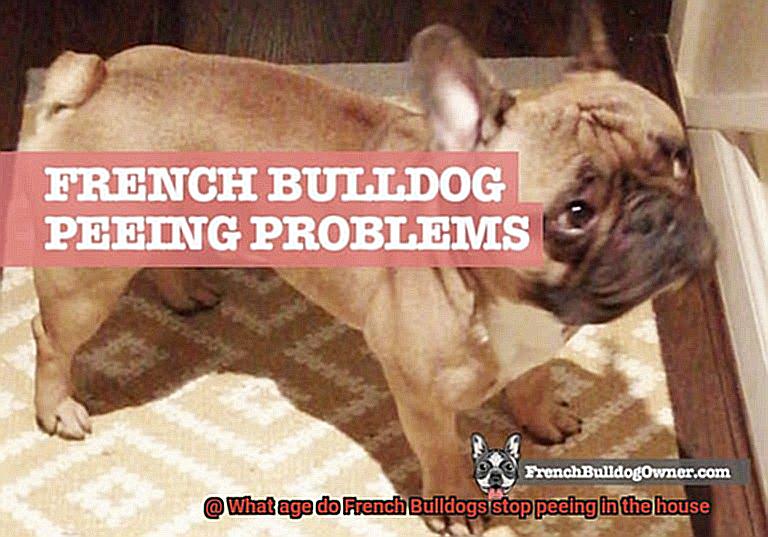
Supervise and restrict access:
During the house training process, keep a close eye on your French Bulldog. If you can’t supervise them, confine them to a small area or use a crate. This prevents accidents and gives you the chance to redirect them to the designated potty spot when needed. Supervision is important to catch any signs that they need to go potty and to prevent them from having accidents in the house.
Consistency is key:
Consistency is vital in house training. Use the same door to go outside, use a consistent command like “go potty,” and take them to the same spot each time. Repetition helps your French Bulldog associate these cues with going to the bathroom. By being consistent, you are reinforcing the desired behavior and helping them understand where they should eliminate.
Understanding Accidents After the Initial House Training Period
It’s a major achievement that brings both you and your furry friend joy and relief. However, accidents can still occur even after the initial house training period. In this article, we will explore the various reasons why French Bulldogs may continue to have accidents in the house and provide insights to help you address these issues effectively.
Incomplete Understanding:
Sometimes, our furry companions need a little extra time to fully grasp the concept of house training. Just like us, they have their own learning curve. If accidents persist, it may be an indication that your French Bulldog hasn’t fully understood that going potty is meant for outside. In such cases, additional reinforcement and training sessions can help solidify the concept in their minds.
Weak Bladder or Health Issues:
Older dogs or those with specific health conditions may struggle to hold their urine for extended periods. If your French Bulldog continues to have accidents, it’s crucial to consult with a veterinarian to rule out any underlying health issues. They can provide guidance on managing bladder weakness or other potential concerns, ensuring your furry friend’s well-being.
Changes in Routine or Environment:
Dogs thrive on consistency and routine. Any disruptions to their established patterns can lead to confusion and accidents. Moving houses, changes in work schedules, or even rearranging furniture can unsettle your French Bulldog’s potty routine. To prevent accidents during times of change, maintaining a consistent schedule and providing ample opportunities for outdoor breaks is essential.
Anxiety and Stress:
French Bulldogs are known for their sensitive nature and susceptibility to anxiety. If your furry friend is feeling stressed or anxious, accidents can be a natural response. Addressing any underlying anxiety through positive reinforcement training and creating a calm environment can significantly reduce accidents over time, promoting a harmonious household for both you and your French Bulldog.
irL4i1Efg4M” >
Conclusion
French Bulldogs typically stop peeing in the house around the age of six to eight months.
During this time, they are still learning proper potty training techniques and may have occasional accidents. However, with consistent and patient training, they can quickly grasp the concept of going outside to relieve themselves.
It is important to establish a regular routine for bathroom breaks and reward them with praise or treats when they successfully go outside. As they mature, their bladder control improves, making accidents less frequent.
Remember, every dog is different, so some may take longer than others to fully grasp potty training.
